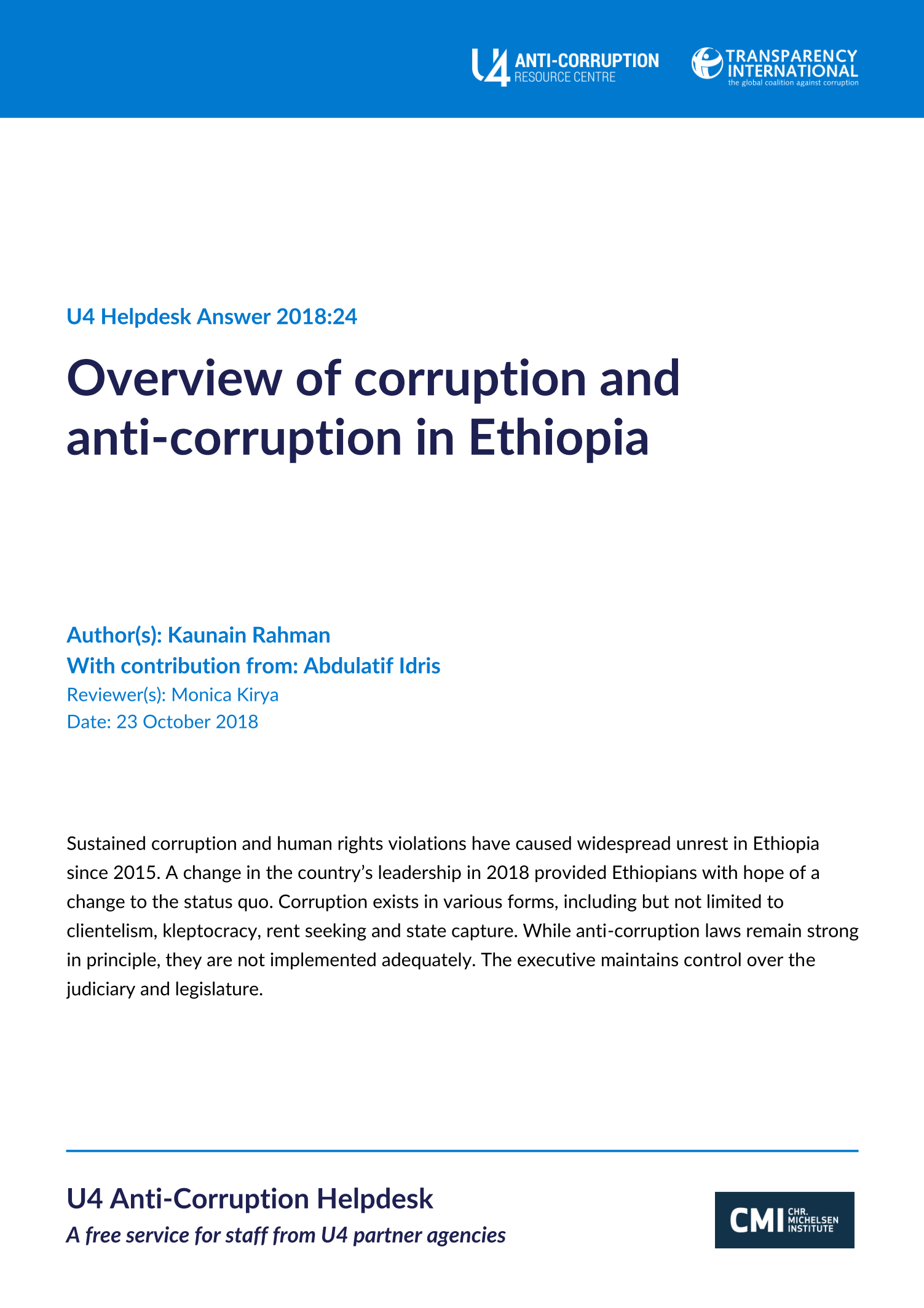Main points
- Ethiopia remains a closed political space, with the ruling coalition retaining all federal and regional parliamentary seats, and silencing any opposing voices.
- Corruption remains a pervasive issue, and the new prime minister has pledged to make addressing it a priority.
- Widespread human rights violations and ensuing impunity of the abusers seems to be the norm.
- The government of Ethiopia’s commitment to anti-corruption needs to be backed up by investing in building the capacity of institutions with anti-corruption mandates.


